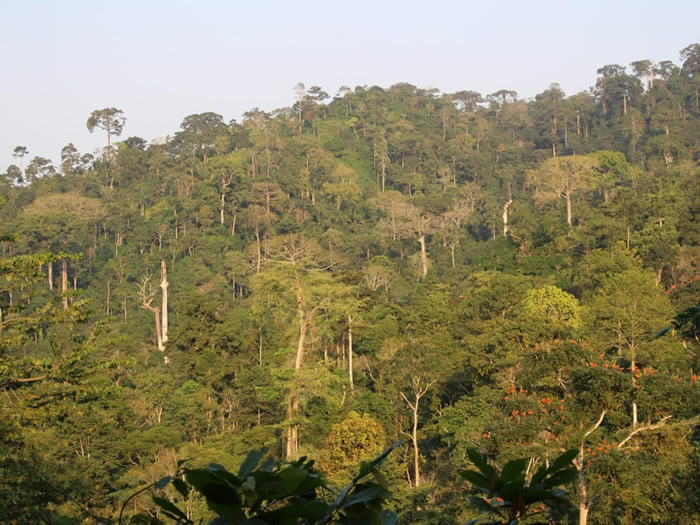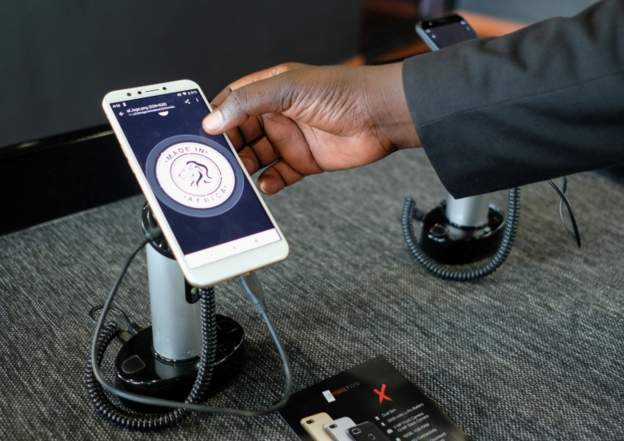Ghana Has Less Than 20% Real Forest – Expert
- Home
- Ghana Has Less Than 20% Real Forest – Expert

Ghana Has Less Than 20% Real Forest – Expert
 The Technical Director in-charge of Forestry at the Ministry of Lands and Natural Resources, Mr Musa Abu-Juam, says Ghana currently has less than 20 per cent of real forest due to illegal activities, such as illegal chain-saw operations and galamsey.
The Technical Director in-charge of Forestry at the Ministry of Lands and Natural Resources, Mr Musa Abu-Juam, says Ghana currently has less than 20 per cent of real forest due to illegal activities, such as illegal chain-saw operations and galamsey.
According to him, the country during the 20th Century had about 1.8 million hectares of forest, which he explained, 20 per cent was earmarked to be used as a permanent forest estate.
He, however, explained that due to lack of adherence to some guidelines regarding forest conservation by some illegal chain-saw operators and illegal miners (gallamseyers), many forests after some timber had been cut from them were not allowed to go through the 40-year rejuvenation period designed for the forests to regenerate themselves before such forests were used again.
Mr Abu-Juam made the remarks in an interview with the Graphic Online after the formal launch of the Atumpan project at the head office of the Forestry Commission in Accra on Thursday, October 17, 2019.
He explained that many forests needed to be given a lot of time for them to go through regeneration, pointing out that “Ghana has one of the best timber conservative harvesting if we obey the rules.”
According to him, many people were impatient to wait for the 40 year conservative cycle where forests were allowed to regenerate themselves, but continue to harvest timber from such forests, thereby destroying them.
“Right now, in terms of real forests, we have less than 20 per cent,” Mr Abu-Juam said, adding that “if you see a forest standing, sometimes they are just empty forests.”
Atumpan project
The project is being implemented by Ecocare Ghana, an NGO with focus on policy and practises around community rights and forests, and how it relates to development, climate change, wildlife conservation, agriculture and other land-use options.
The project, which started in August this year and will end in 2020 is being funded by the European Union (EU) through the Food and Agriculture Organisation (FAO).
The Atumpan project is a communications project meant to make sure that everything concerning the Ghanaian timber industry followed a due process as outlined in the Voluntary Partnership Agreement (VPA) under the Forest Law Enforcement, Governance and Trade (FLEGT) between the European Union (EU) and timber producing countries that trade with the EU.
The VPA sets out the commitments and actions of both parties to tackle illegal logging.
Ghana entered the VPA negotiations in 2006 with two key objectives; improving governance in the forestry sector and maintaining access to EU markets.
Implementation
Mr Abu-Juam explained that with the full implementation of the VPA, it would help to eliminate the incidence of illegal logging and trading of timber products both locally and internationally since there would be no market for such individuals.
He said the FLEGT could only be implemented only when there was a forest, hence calling on all stakeholders to help to enhance the country’s forests.
He said although forests were there to be used to improve the lots of the people, it ought to be used sustainably so that other generations would also benefit from it.
Encouragement
For his part, the Director of Validation at the Forestry Commission, Mr Chris Beeko, said “Ghana has become an encouragement in this (VPA) process because we are the front liners, first of all, in Africa.”
He said the country was the first to finish and sign the VPA agreement with EU, explaining that although Indonesia had overtaken it in the implementation of the VPA, the country was at the point of exporting timber under the VPA license.
He said many country’s had been coming to study the country’s policies in the area of forestry management, pointing out that Vienna would soon be coming to the country to learn from its timber industry.
Mr Beeko explained that the country had used the systems of the VPA to improve law enforcement, how forest management prescriptions were applied, and how actors comply with the regulations and the law, with the overall objective of ensuring that players in the industry acted within the limits of the laws that regulate the sector.
Awareness
A Consultant with Ecocare, Mr Samuel Mawutor, said the Atumpan project had been launched to create the needed awareness that timber from the country followed laid down procedure.
“We want people out there to understand that there has been a lot of collaborative work to get to this level, where they are ready to issue the license,” he noted.
He was of the view that the “EU market is not really aware of the processes of reforms” in the country’s timber industry, noting that “the timber market in Europe and other trade destinations don’t really understand how much hard work Ghana has done to reform the timber sector.”
According to Mr Mawutor, the overall objective of the project was “to effectively communicate Ghana’s FLEGT-VPA processes, milestones and outcomes towards EU market actors and other stakeholders, in preparation towards FLEGT licensing”.
Source: Graphic Online
- Share
Classic Ghana
Classic Ghana is a vibrant news portal dedicated to bringing you the latest in arts, entertainment, fashion, beauty, photography, culture, and everything in between. Our mission is to publish high-quality articles and features that inform, inspire, and engage the general public. We also believe in the power of community and creativity. That’s why we welcome contributions from our readers! If you have a story, article, or idea you'd like to share, we invite you to submit it for publication. Send your stories to: info@classicghana.com







